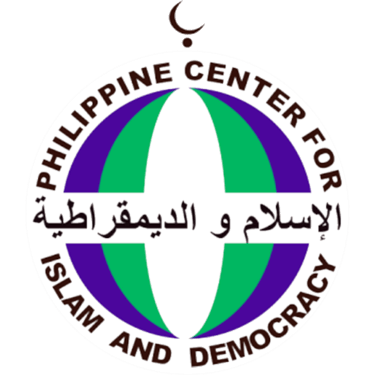NewsSHE TALKS PEACE: Mobilizing Masculinist States In ASEAN
QUEZON CITY (MindaNews / 19 September) – September 11 (9/11) may have been a day of tragedy for the United States but in Muslim Mindanao, it was a day of unity. Bangsamoro Chief Minister Ahod “Al Haj Murad” Ebrahim, chair of the Moro Islamic Liberation Front (MILF), traveled to Davao City to visit Nur Misuari, chair of the Moro National Liberation Front (MNLF). “This is a great day, a great day for the Bangsamoro homeland,” Misuari said according toMindaNews. The two liberation front leaders talked, the first time in over two decades. CM Ebrahim invited Misuari to attend the inaugural session of the Bangsamoro Transition Authority (BTA) in Cotabato City on September 15.
Chair Misuari obliged, joining President Ferdinand Marcos Jr. and CM Ebrahim at the ceremonial opening of the BTA. Also present were Senate President Juan Miguel Zubiri and House of Representatives Speaker Martin Romualdez.
CM Ebrahim, happy that the MNLF and the MILF would “ work together for a united Bangsamoro, bound by our common goal,” called on Marcos to complete the peace process – stating that it could be one of his greatest legacies.
I can imagine the setting – all these masculine leaders sharing a stage, vowing to support peace. What were the women thinking, I wonder?
Which leads me to the conversation I had with Dr. Lourdesita Sobrevega-Chan of Ateneo de Davao on “She Talks Peace.” Prof. Bing is the Philippines’ Women’s Rights Representative to the Association of Southeast Asian Nations (ASEAN) Commission for the Promotion and Protection of Women and Children (ACWC) and has served as such since 2017. She is the Chairperson of the Ateneo de Davao University’s Research Council. In this week’s episode of She Talks Peace, Dr. Bing Chan gave us an inside look on her experience advocating for women’s rights among masculinist states.
“The ACWC is a human rights body of the ASEAN,” Professor Bing explained. “As such, it is dedicated to studying the particular situation of women and children in the region.” Each ASEAN member state has two representatives in the Commission—one for women’s rights, and the other for children’s rights. Together, the representatives work to end violence against women and children (VAWC) in the region through such instruments as joint statements, declarations, and similar documents. The body is concerned with a wide range of issues including but not limited to gender mainstreaming and the protection of migrant workers.
When questioned on the effectivity of the ACWC (and of the ASEAN itself), Professor Bing came to its defense. “I feel privileged to be a part of this body where we can make a dent,” she began. “We can influence policy directions and decisions of the key stakeholders in the region: the 10 member states.” The dominance of masculinist states in the region makes it difficult to instantaneously address gender issues of pressing concern (e.g., VAWC). The question, therefore, becomes: How does one convince what Prof Bing calls “a masculinist state” to mobilize its financial resources in support of programs and campaigns to systematically put an end to VAWC? The solution is only further complicated by the ASEAN’s reliance on consensus. It’s no wonder that the ASEAN seems to make decisions slowly when the 10 members states have such diverse — and occasionally contradicting —government systems, from a true monarchy to democracies.
“Nothing is made easy,” Professor Bing said. The Commission is often confronted with formidable states, but she believes that there is no state so formidable that it cannot be penetrated. Professor Bing assured that major milestones are being made slowly but surely, as the ACWC’s consultations go beyond their ranks and reach the tables of state leaders. However, mobilizing masculinist states to strive toward the protection of women, cannot be done by the ACWC alone. All states, however formidable, are sensitive to public opinion. With this knowledge, women’s groups can strengthen their ranks and let their advocacies be heard by their governments.
For one, women and civil society groups have been discussing the draft of ASEAN’s Regional Plan of Action for Women, Peace, and Security. ACW and the ASEAN Committee on Women (ACW) are responsible for the draft plan, envisioned to be approved at the ASEAN Leaders’ Summit in November. We at the Philippine Center for Islam and Democracy have been working with UN Women-Indonesia to organize consultations that will surface recommendations from civil society organizations (CSOs) in ASEAN member states, particularly women and youth (#WPSASEAN). And CSOs have much to say indeed.
Closing the episode, Professor Bing called on young boys and girls to start building the future now. “If you enjoy the liberty and gains of freedom, you enjoy now, remember it was paid with the lives and blood of those who came before you,” she pleaded. The youth should treasure this freedom, and may do so simply by looking at their own families. “Look at the gender relations within your family, and you will see that there are privileges, discriminations, and subordinations. There [may be] those suffering from violence. Ask yourself, ‘Should I just be a silent witness?”
Please Click, Play and Listen on Spotify:
https://spoti.fi/3UevH9j
Apple Podcasts:
https://apple.co/3BrS02E
She Talks Peace is now on Twitter and Instagram! Follow our pages to interact with us, and to get updates on the latest podcast episodes.
Twitter: https://twitter.com/shetalkspeace
Instagram: https://www.instagram.com/shetalkspeace/
(MindaViews is the opinion section of MindaNews. Amina Rasul is the President of the Philippine Center for Islam and Democracy, an advocate for Mindanao and the Bangsamoro, peace, human rights, and democracy)
